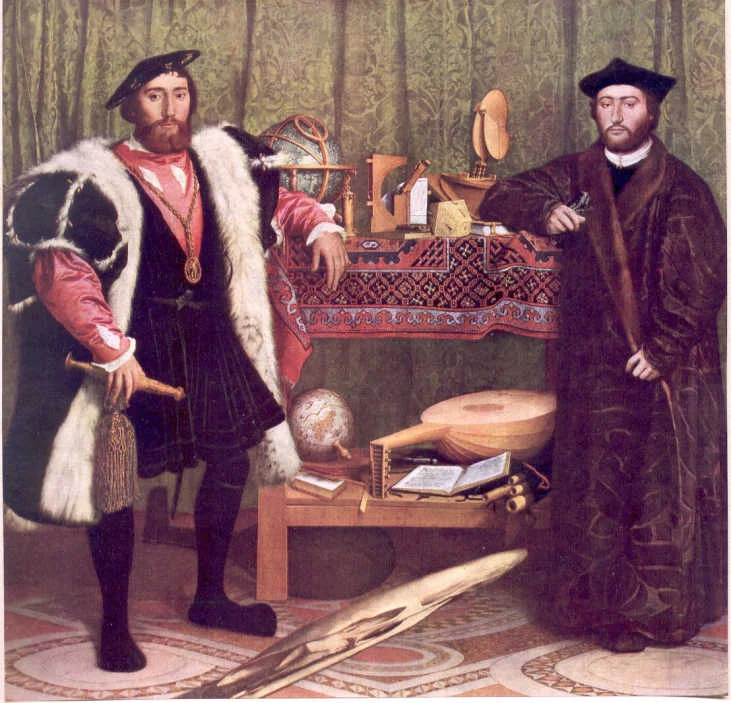The Christian Life: A Thought Experiment, Part 2
In the last post, we considered that our life in God through Christ Jesus is both now, and not yet. We looked at several scriptures fixing our salvation through both time (past, present, and future) and eternity, And we used an incomplete analogy to through through how we live in our salvation here and now.
I want to look at this again from a little different angle using another incomplete analogy. While we live in both the temporal and eternal fullness of our salvation in and through Jesus, what should our attitude of heart be?
In the first analogy, we lived in a far and beautiful country. And in a sense, we are elevated like that, and the Holy Spirit leads us in the way everlasting. But, everyone knows we live here in the sometimes hard-knuckle, and increasingly callous post-everything world.
So as the saved-being saved-and will-be-saved people of God, how do we live as salt and light to those around us? Let’s start here:
Therefore, we are ambassadors for Christ, God making his appeal through us. We implore you on behalf of Christ, be reconciled to God. (2 Cor. 5:20)
I want to key off the word “ambassador” because we don’t appear to be living and acting like we are from a far and beautiful country; we are rooted here—in the world, and of it. We look like everyone, talk like everyone, and do the same things as everyone. It is very hard to tell the saved-being saved-and will-be-saved people of God from the people of the world. I don’t think that is helpful. Where is our identity? Our neighbors need salt and light, and tangible opportunities for grace and truth in Jesus—since there is no other name under heaven by which men may be saved.
So the question for me is: is there a bearing, or an attitude of heart, that might show the separation from my neighbor, which might actually open the way for my neighbor to come into union with Christ? The closest analogy I can think of is the diplomatic service.
The diplomatic service is a government-appointed body of individuals who are sent by one country to live and work in another in order to represent their home country and their home country’s interests. Serving as intermediaries between the two countries, diplomats are tasked with conducting official negotiations and maintaining political, economic, and social relations between the two countries. Originally, diplomatic officials were members of royal or noble families and served as the personal representatives of sovereign rulers that sent them. Man, that’s close, and consistent with 2 Corinthians 5:20.
Imagine then that you are the British ambassador to France. As much as you might like fresh baguettes, Camembert, small cafes, and the French people, you are British. In fact, your are Britain to the government and people of France. Here’s what the UK government says about its ambassador:
The Ambassador represents Her Majesty The Queen and the UK government in the country to which they are appointed. They are responsible for the direction and work of the Embassy and its Consulates, including political work, trade and investment, press and cultural relations, and consular services.
The British ambassador represents the Queen. Shouldn’t we represent the King of kings and Lord of lords in the place He has appointed us? I guess the issue for us is whether we actually have a sovereign. Another issue for us would be whose interests are we advancing: the Sovereign Lord, ours, or the world’s?
Here is what the British Embassy in Paris says about its mission:
The British Embassy in Paris maintains and develop relations between the UK and France. The UK's network in France and Monaco supports the government's main aims overseas: keeping Britain safe, making Britain prosperous and helping British nationals.
What is our mission? Do we have one? We do. And it give us a separate identity from our neighbors to the end that we can join together with them in the promised salvation in Christ Jesus. Let’s return to 2 Corinthians 5:
So from now on we regard no one from a worldly point of view. Though we once regarded Christ in this way, we do so no longer. Therefore, if anyone is in Christ, the new creation has come: The old has gone, the new is here! All this is from God, who reconciled us to himself through Christ and gave us the ministry of reconciliation: that God was reconciling the world to himself in Christ, not counting people’s sins against them.
And he has committed to us the message of reconciliation. We are therefore Christ’s ambassadors, as though God were making his appeal through us. We implore you on Christ’s behalf: Be reconciled to God. God made him who had no sin to be sin for us, so that in him we might become the righteousness of God.
Amen, Mr. and Mrs. Ambassador.


